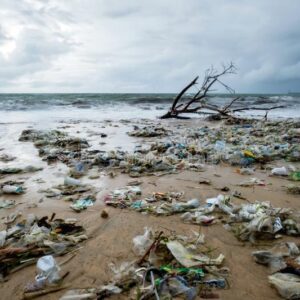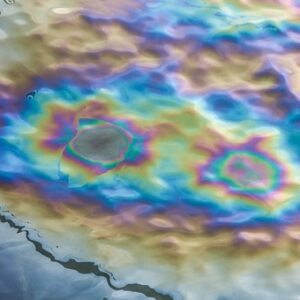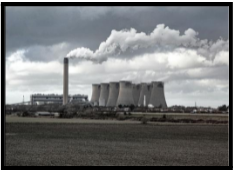The soil is a portion of the Earth that we rarely see due to the rise of concrete buildings and roadways. Soil Pollution, Dirt, mud, and ground are just a few of the titles given to it. It is, nonetheless, crucial to us. The plants that provide us with food grow on soil, and keeping it healthy is critical to preserving the planet’s beauty. Pollution affects soil, just as it does all other forms of nature. The presence of man-made trash is the primary source of contamination in the soil.
Soil Pollution

The presence of harmful substances (pollutants or contaminants) in the soil at quantities high enough to endanger human health and/or the environment is known as soil pollution. Even if the amounts of contaminants found naturally in soil are not high enough to constitute a risk, soil pollution is defined as when the amount of contaminants in soil surpasses the amount that ought to be present naturally.
Causes of soil pollution
Soil pollution is a complicated phenomenon that can be generated by a range of substances and behaviours, ranging from cigarette butt littering to the overuse of chemical fertilisers. Every cause is intertwined with the others. It’s tough to pinpoint one particular factor. The most common causes, however, are given below.
● Activity in Industry
In the last century, industrial activity has been the most significant contributor to the problem, particularly as mining and manufacturing have risen. Mineral extraction is critical to the majority of enterprises. Whether it’s iron ore or coal, the by-products are contaminated, and they’re not properly disposed of. As a result, the industrial waste remains for a long period on the soil surface, rendering it unfit for human consumption.[Soil Pollution]
● Activities in Agriculture
Since the invention of modern pesticides and fertilisers, the use of chemicals has increased dramatically. They’re chock-full of compounds that don’t occur naturally and can’t be broken down by them. As a result, when they combine with water, they seep into the ground, depleting the soil’s fertility over time. Other substances change the composition of the soil, making it more prone to erosion by water and wind.
Many of these pesticides are ingested by plants, and as they decompose and become a part of the soil, they poison it.
Acid rain
● Disposal of waste
Finally, how we dispose of our waste is of increasing worry. While industrial waste will undoubtedly pollute the environment, we are also contributing to pollution in another way. Every human generates a certain amount of personal waste by way of pee and feces. While much of it makes its way into the sewer system, a significant portion of it gets deposited in landfills as diapers.[Soil Pollution] Even the sewer system terminates at the landfill, where biological waste contaminates the soil and water.
This is due to the fact that our bodies are full of toxins and chemicals, which are now seeping into the soil and polluting it.
● Accidental oil spills
Oil leaks could happen while chemicals are being stored and transported. During the storage and transportation of chemicals, oil spills might occur. The toxins in the gasoline degrade the quality of the soil and render it unfit for cultivation. These toxins have the ability to contaminate groundwater and make it unsafe for human consumption.
Consequences of soil pollution

● Human Health Consequences
Because soil is the source of our ability to survive, pollution has far-reaching health repercussions. Plants and crops that grow in polluted soil absorb a significant amount of pollutants before passing them on to humans. This may account for the abrupt increase in minor and fatal ailments.
Long-term contact with this type of soil can alter the body’s genetic makeup, resulting in congenital disorders and chronic health problems that are difficult to treat. In reality, it can cause significant illness in livestock and long-term food poisoning. If plants are unable to grow in polluted soil, it can even result in widespread famines.
● Effects on Plant Growth
The extensive contamination of the soil has an impact on any system’s ecological equilibrium. Most plants are unable to adapt when the chemistry of the soil changes substantially in a short period of time. The fungi and bacteria that hold the soil together begin to weaken, resulting in soil erosion. The fertility of the soil deteriorates over time, making the area unsuited for cultivation and preventing any local vegetation from surviving.
Large expanses of land have become poisoned, posing a risk to human health. Unlike deserts, which support natural plants, such land is unsuited for most forms of life.
● Reduced Fertility of the Soil
Toxic chemicals in the soil can diminish soil fertility, lowering soil productivity. The polluted soil is then used to grow fruits and vegetables that are deficient in nutrients and may contain substances that can cause major health issues in those who consume them.
● Toxic Dust
Landfills emit toxic and filthy gases that harm the environment and have major health consequences for some people. Furthermore, other people are bothered by the foul odour.
Control of soil pollution
The following are some of the most important ways of decontaminating polluted soil.
● Less use of chemical fertilisers
Chemical fertilisers are more damaging than beneficial. While the right quantity can help the land become more fertile, too much can actually harm it. Excessive use of chemical fertilisers can affect the soil in a variety of ways. It has the potential to change the pH of the soil. It could also wipe off beneficial soil bacteria. Furthermore, runoff from these soils pollutes the water source. As a result, utilising chemical fertilisers is a two-edged sword.
● Promoting reforestation and afforestation
Soil erosion, which is caused by deforestation, is a major source of soil contamination. With an ever-increasing population, it is only logical that humanity requires more and more room to expand its civilization. It is frequently attained at the expense of soil health. This was accomplished at the expense of the soil’s health. To avoid this, the regeneration of a deforested region should be encouraged.[Soil Pollution]

Afforestation should also be encouraged in the desolate plains. Plant roots connect soil particles and even trap helpful bacteria in the soil. It also ensures the subsurface water table is preserved.
● Products should be recycled and reused
These actions not only reduce waste output but also reduce soil pollution. The vast majority of this trash is buried in landfills. In landfills, plastics and other garbage decompose slowly, releasing hazardous substances into the soil. These hazardous compounds are a major cause of soil contamination and are particularly harmful to soil health. By repurposing and recycling items, we can ensure that fewer waste items are thrown into landfills, resulting in less soil pollution.[Soil Pollution]
● Get the Community Involved
To address a problem like soil contamination, it is vital that everyone contributes. Things are more likely to work out if they are involved. Through awareness efforts, people could be taught about soil pollution. People would help, even subconsciously, if they were aware.
● Encourage the use of natural manure
Natural manure is one of the best nutritional sources for the soil. It’s 100% natural and safe. It replaces vital nutrients in the soil and improves its general health. There are no harmful by-products that could harm the soil or the ecosystem.[Soil Pollution]
Internal links:
Duty towards mother Earth – Erakina
Mother’s Day, Mother Earth- Erakina.
JAMMU KASHMIR: THE HEAVEN ON EARTH – Erakina
External links:
Date: 15 June 2022






